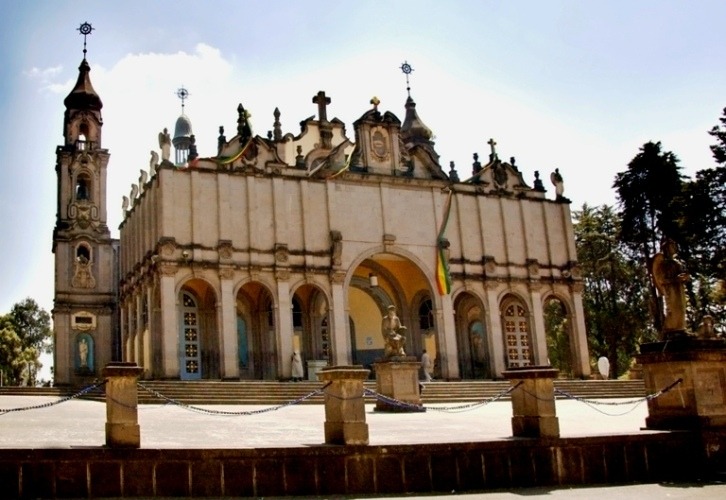
Burning Churches, Political Turmoil and Ethnic Conflicts – A New Year with New Challenges for the Ethiopian Orthodox Church
Menetasnot Desta – (Chief Administrator – OCP Amharic Service) – 14/9/19
Special Courtesy – Deacon Solomon Kibriye – (Chief Editor of Ethiopian Affairs)
Addis Ababa- Ethiopia: The Ethiopian Orthodox Church is celebrating the new Ethiopian year. The current year was filled with challenges and temptations as a result of various problems, especially ethnic extremism.
Every general assembly and synod meetings (during the last 3 years) were shadowed by demonstrations and petitions against attacks on the Church, and ethnic conflicts. People from all corners of the country and Ethiopian Orthodox Diaspora (dioceses) came to the Patriarchate to state their opposition.
Ethiopian Orthodox Patriarchate Slams Relentless Attack on Churches and the Faithful
The external challenges from political and social movements and other religious groups are on the rise. OCP News Service reported that during the last one year (from November 2018 to August 2019) more than 15 Churches were burned down and many Christians lost their life (martyred). The Churches were burned by direct command from the leadership of various extremist organizations, and and at some places by the orders from some of the clan leaders. There are evidence that some of the government authorities on zonal and regional levels are involved with the on going crisis. There are also rumors on the involvement of various federal government authorities, even though the authenticity of such involvements are highly disputed.
The political and extremists forces did not stop by burning Churches, rather resorted to other measures to build pressure on Orthodox Christians. In some of the government Zones (middle level regional structures) and Woreda (low level regional structures) Orthodox Christian governmental employees were denied promotions to higher positions. They were asked to remove Mahitabe (a tiny tie with a cross that is tied on neck of each faithful during the baptism ceremony, in order to identify themselves as Orthodox Christians) and any kind of symbols and icons. Whereas hijab and caps are permitted for Muslims and wearing Christian T- shirts and Bible are permitted for Protestants. On the other hand, Orthodox Christians were fired from their jobs if they were not willing to convert. Gofa zone of SNNPR (southern nation, nationalities and peoples region) is a classic example for this kind of governmental practices.
In the April 2019 of economist magazine, a Protestant Pastor (Nigusie Roba) argued that the current political and economic reform is a result of the Protestant movement by mentioning the cases of current higher officials, including the Prime Minister, his religious status and position.
Protestants started a campaign to prevent Orthodox Christians in taking part from national and local issues and they have tried to monopolies the Media to depict the Ethiopian Church as an old and redundant traditional entity.
Attaching the Ethiopian Orthodox Church with some ethnic groups, especially with the northern people (by non-orthodox groups and political activists) resulted in confusion and alienation for the non-northern Orthodox Christians.
Besides Church burning and martyrdom, the Ethiopian Church was further taunted by the ‘Oromo Christians question’. Last week, the Holy Synod called an urgent meeting to discuss the ‘Omoro Question. The Synod was called to demand an explanation from those who organized a separate ‘Omoro Synod’ outside the control of the Church and to question why they acted without authority from the Church and to decide what to do about them, as well as to discuss the mounting persecution of the Church and the government’s lack of action in preventing the same. The Holy Synod rejected the question in order to keep the unity of EOTC as the one Catholic, Apostolic, and Orthodox Church in Ethiopia, but stated hymns and sermons in other local languages have long existed.
The Ethiopian Church and her faithful members hope to overcome all difficulties and problems. Various Ethiopian Church groups have called to organised international demonstrations in capitals of the federal and regional states of Ethiopia, in USA and Germany. However, the demonstration has been postponed by two months as the government has entered negotiations with the organizing committee in order to resolve the problems raised by the Ethiopian Church.
Source:
OCP News Service


132997 730336View the following guidelines less than and locate to know how to observe this situation whilst you project your home business today. Earn money from home 81134